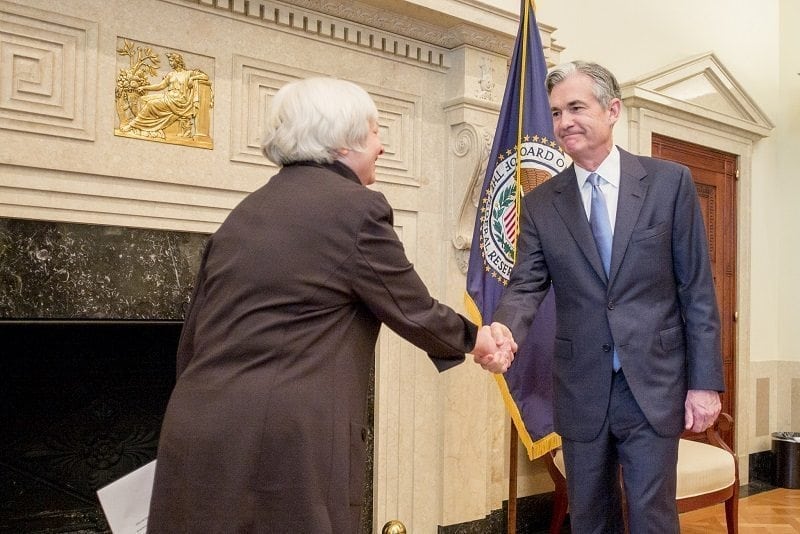In its Q2 outlook, the firm forecast the Fed will raise rates four times in 2018, with a further four hikes on the cards for 2019, taking the policy rate to over 3%.
It is currently overweight equities, underweight on all nominal government debt bar Australia, and underweight credit, except with a strong overweight in emerging market debt. It is neutral on alternatives and underweight cash.
The firm said it revised its US underweight position to neutral and said this move was driven by an upward revision in the outlook for the country.
Aviva added this decision was supported by its forecast that earnings growth is set to remain strong, with share buy-backs potentially providing more support to the market.
In the outlook, the firm also said it is forecasting a 2% pickup in inflation this year and raised its global growth expectations to near 4%, the fastest rate of increase in seven years.
However, the asset manager explained that to accommodate the changes to the US position, exposure in other markets had to change, with a slight reduction to Europe and Japan.
Duration underweight
Within fixed income, Aviva has taken an aggressively underweight duration position in developed markets due to the return of inflation and changing monetary policy.
The most acute threats for duration lie in Japan and the Eurozone for sovereign bonds, the firm noted.
The firm is positive on emerging markets because of strong growth and a benign dollar making it an attractive asset. It is also the preferred area in equities and local currency debt.
UK exception
Aviva remained underweight in UK equities as uncertainty around Brexit remains and made a small reduction in equity exposure.
However, overall Aviva remains constructive on global equity markets and maintains an overweight position.
Ahmed Behdenna, senior strategist at Aviva Investors, said: “A higher volatility regime is arguably a good thing for global markets. The robust growth backdrop, which is expected to continue, is helping markets to stand on their own two feet again.
“The almost uninterrupted rise in equity markets, accompanied by extremely low volatility, has been less healthy. We think that global markets have regained some ability to price risk. There is some differentiation to be made across asset classes once more.”







